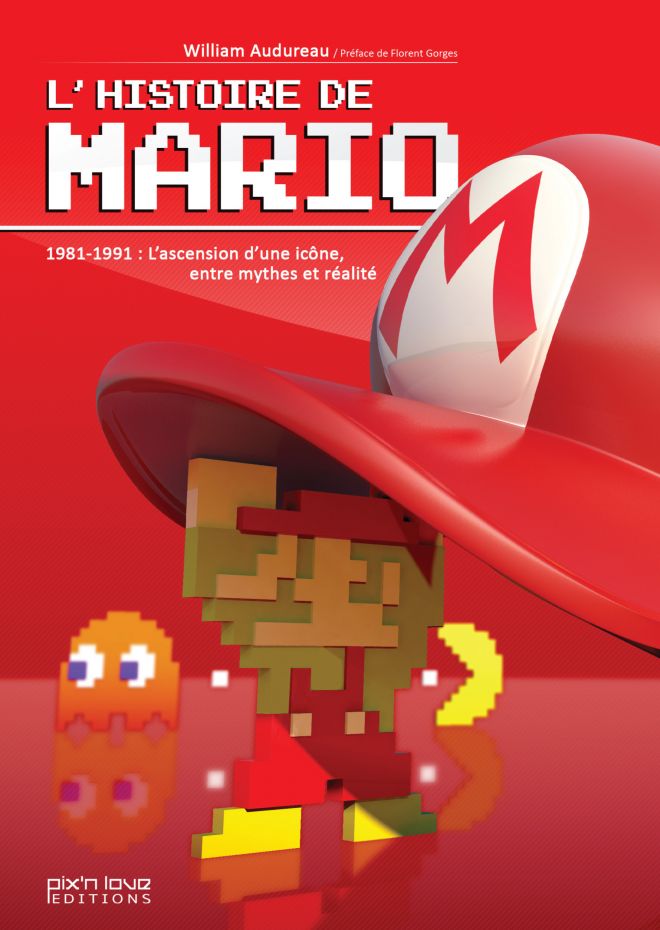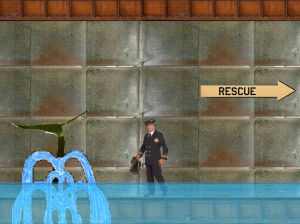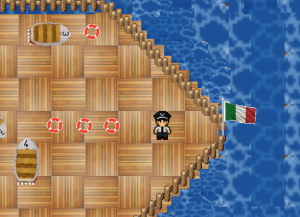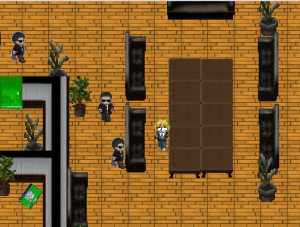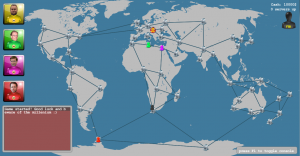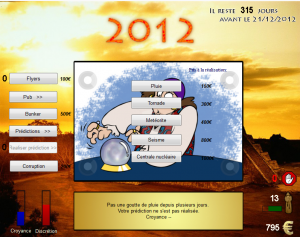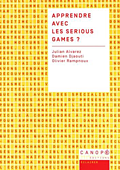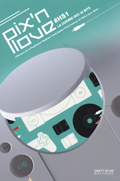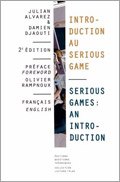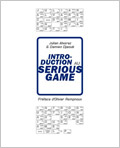LudoScience
JIES Paris 2012 days Julian Alvarez | 05-17-2012 | 17:23
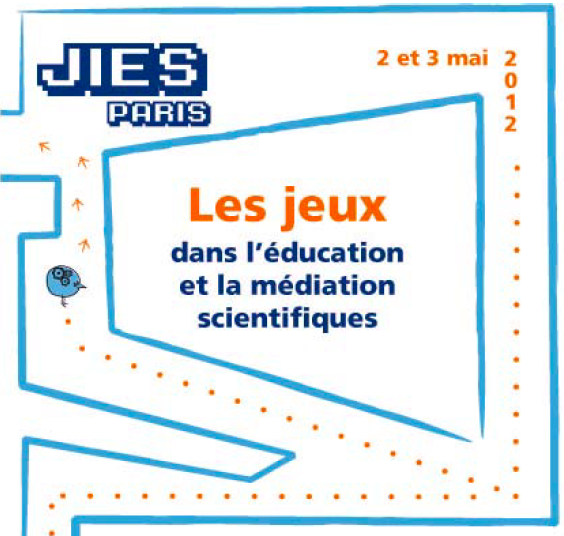
JIES Paris 2012 days approach the topic of the game in sciences education. Intended for the professionals of education, these days are centered towards the reflexion on the relationship between sciences, technology, trainings and games. Ludoscience, represented by Julian Alvarez, was invited to take part to the event May the 3rd. Thank you Traces for its invitation. We will return with pleasure to exchange again with the actors who question themselves on the introduction of the game into classroom.



Photos : cafepedagogique.net
Some links dedicated to JIES 2012 :
Leave a comment | Category : Conferences, | Keywords : Learning, Education, Game,
Book chapter: Origins of Serious Games Ludoscience | 04-29-2012 | 15:22
We wrote an article about the historical origins of "Serious Games", which get published by Springer in the book "Serious Games and Edutainment Applications" a few months ago. We first review the historical definitions of the "Serious Games" oxymoron. We then explore the history of videogames in search of the first "Serious Games", that actually appeared before the first entertainment videogames...
This book gathers several scientific articles dedicated to Serious Games, and can be bought online from Springer. But for those of you who only wish to read our chapter about the history of "Serious Games", a draft version of this chapter in now available on our website.
Leave a comment | Category : News, Studies, | Keywords : serious games, history,
International Scientific Symposium « Evaluate and Measure the Impact of Serious Games » Julian Alvarez | 03-15-2012 | 20:33

On May 23rd in Valenciennes, we are organizing a scientific symposium called
“Evaluate and Measure the Impact of Serious Games” during the international
“evirtuoses” event. This meeting aims at asking questions on approaches,
paradigms, experience feedbacks enabling the projection of theoretical
frameworks, methodologies leading to evaluate or measure the impact of Serious
Games, but also to report on collected and analyzed results. Serious Games
generate indeed a strong interest by the perspectives they promise to offer in terms
of prevention, training, education, learning, therapy, communication, coaching, data
collection, etc.… and in areas as varied as education, training, healthcare,
marketing, security, culture… If the question on how to create a Serious Game
remains important, we should ask ourselves how to evaluate and measure the
impact from a scientific point of view. This builds into an essential step in order to
bring guidance to sponsors, users, creators and researchers.
The impact notion is described here as the effect or influence that Serious Games
generate on users but also on an ecosystem. We will explore 3 levels of scale:
micro, meso and macro. We can illustrate those three levels with the study of a
Serious Game user feedback (micro), the interactivity between a user or a group of
users and a Serious Game (meso), and the interaction generated by a Serious
Game in an organized system of any size: institution, enterprise, city, county
(macro). These references are proposed as examples. Depending on the scientific
disciplines, the three levels may command different methods. Let us note finally
that the concept of effectiveness can also be associated with the concept of impact
within the framework of this Symposium.
The objective of this symposium is overall to provide input for a debate based on
sharing paradigms coming from several disciplinary approaches as sciences of
education, information and communication, psychology, sociology, management,
computing, neurosciences, Arts… This comparative approach aims at offering a
large specter to study an object which impact can be divers and relative.
In order to summarize the thinking and the works of each participant, we propose at
the end of this symposium to co-write and publish a scientific paper or a special
issue on an on-line scientific review before the beginning of 2013.
Keywords:
Impact, Evaluation, Measure, Serious Game, Organized system, Ecosystem,
Effectiveness
The planning is as follows:
- Text submission (~1500 words) before: April 18th 2012
- Notification to the Reading Committee: April 30th 2012
- Symposium on May 23rd
- Notification of the selection of chosen articles: June 1st 2012
- Final texts submission for publication: October 1st 2012
The speech proposals can include:
- a long presentation (20 minutes and 10 minutes of Q&A)
- a short presentation (10 minutes and 5 minutes of Q&A)
- a poster
Format:
The speech proposal can be submitted in English or French in Word or PDF
format.
Please use the template “Art-modele-Impact SG-2012.doc” you can download at
the following address: http://bit.ly/xjCLye
Scientific Commitee:
Serge Agostinelli (University of Marseillle, France)
Julian Alvarez (Supinfocom groupe Valenciennes/ University of Lille, France)
Raquel Becerril Ortega (University of Lille, France)
Pierre-André Caron (University of Lille, France)
Christophe Chaillou (University of Lille, France)
Yann Coello (University of Lille, France)
Damien Djaouti (University of Toulouse, France)
Pascal Estraillier (University of La Rochelle, France)
Abdelkader Gouaich (University of Montpellier, France)
Patrick Felicia (Waterford Institute of Technology, Irlande)
Maurizio Forte (University of California, USA)
Sara de Freitas (Coventry University, UK)
Pamela Kato (University Medical Center Utrecht, Netherlands)
Christophe Kolski (University of Valenciennes, France)
Isabelle Laffont (University of Montpellier, France)
Sandy Louchart (University of Heriot-Watt, Scotland)
Denis Mottet (University of Montpellier, France)
Louise Sauvé (University of Québec at Montréal, Canada)
Gilson Schwartz (University of São Paulo, Brazil)
Franck Tarpin-Bernard (INSA of Lyon, France)
Partners :

Contact :
Julian Alvarez : j.alvarez@grandhainaut.cci.fr
Leave a comment | Category : Conferences, | Keywords : Impact, Evaluation, Measure, Serious Game, Organized system, Ecosystem, Effectiveness,
The History of Mario - published by Pix N'Love editions Damien Djaouti | 02-18-2012 | 17:00
On the french version of this blog , I posted an in-depth critic of a (french-written) book about the history of Mario. Far from being a simple "illustrated books for fans" filled with nostalgia, l'Histoire de Mario by William Audureau and published by Pix N'Love is one on the most interesting books about the genesis of Mario. It's not an history book, it's an analytical book that tries to answer one simple question : "Why Mario?".
After all, when Nintendo picked a mascot, a plumber jumping on walking mushrooms may not have been a "natural choice" at first, isn't it? This book analyses historical elements to demonstrate why it was Mario and not Donkey Kong (trapped in legal issues), Conkichi (too japanese) nor Stanley (featured in average quality games).
This book also delivers rare trivia about the history of Mario. Did you know that Miyamoto himself wanted to call his character "Mr Video" at first? (even before the "Jumpman" and "Ossan" names) Did you know that the design of Super Mario Bros. 3 was heavily influenced by a field trip made by the employees of Nintendo to Disneyworld? Did you also know that Shigeru Miyamoto didn't designed Super Mario Bros. all alone, but probably couldn't make such a perfect game without his colleagues Takashi Tezuka, Toshihiko Nagako and Koji Kondo?
In the 420 pages of this book, you will have the answers to these questions and much more... If this book is ever translated in English (and I hope it'll be someday), be sure to take a look at it because it contains a lot of historical information about Nintendo and its design process in the 80's!
Leave a comment | Category : Reading, | Keywords : mario, history, nintendo, analysis,
New students projects added Ludoscience | 02-09-2012 | 13:52
In the past few years, we have been relying on Newsgames to teach our students the basics of Serious Game Design.
Newsgames are a good way to motivate students. First, anyone can have something to say about what is going on in the world. But Newsgames are also small and short games that can be created in very limited time and with very limited skills. Most of out students are not skilled at all in programming, graphics or even game design. But by using tools such as The Games Factory 2, they can build very interesting game in about 3-4 days.
Here are some Newsgames created by our students this year:
In L'échapée belle, you play as the captain of the Concordia ship, and must escape from your sinking boat.
La croisière s'échoue is based on the same news, but this time you'll have the choice to save some passengers. But the time you spend rescuing people may be the time you'll need to save your own life...
Pirates VS FBI VS Sharks is an humourous game about the FBI closing MegaUpload. You'll have to go to Hong-Kong and infiltrate MegaUpload's datacenter in order to rescue your data without being caught by the FBI.
MegaGame is also related to MegaUpload. This time, you play as Kim Dotcom and his colleagues, and must try to win money without being caught by the FBI.
Last but not least, 2012 - The Game is a satirical game about the fear of the world ending in december 2012.
You can find all the others Serious Games created by our students in the dedicated section.
Leave a comment | Category : Game Design, | Keywords : newsgames, students projects,
About
This website gathers ours thoughts, our projects, our publications and many pedagogical resources related to the various types of videogames:
Blog categories
Our books
Follow us
Our last tweets
Videogaming links
-
http://bnf.libguides.com/jeux-serieux
- AFJV News
- (BNF) French National Library Serious Games
- Genious Serious Games
- Succubus Serious Games
- SGBelgique Serious Games
- AcCréteil Serious Games
- 1984 Advergames
- Ex-Vid Studies
- Playtime Studies
- Pix'N Love Books
- Console Syndrome Studies & Books
- Olivier Mauco Studies
- Alexis Blanchet Studies
- TIGSource Indies News
- IndieGames Indies News
 Français
Français English
English